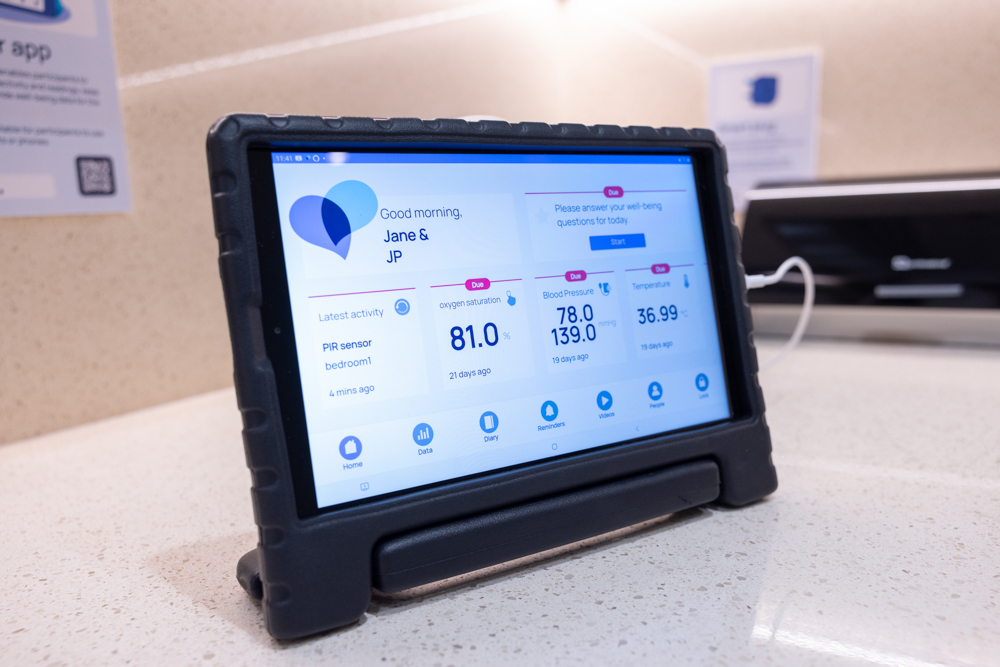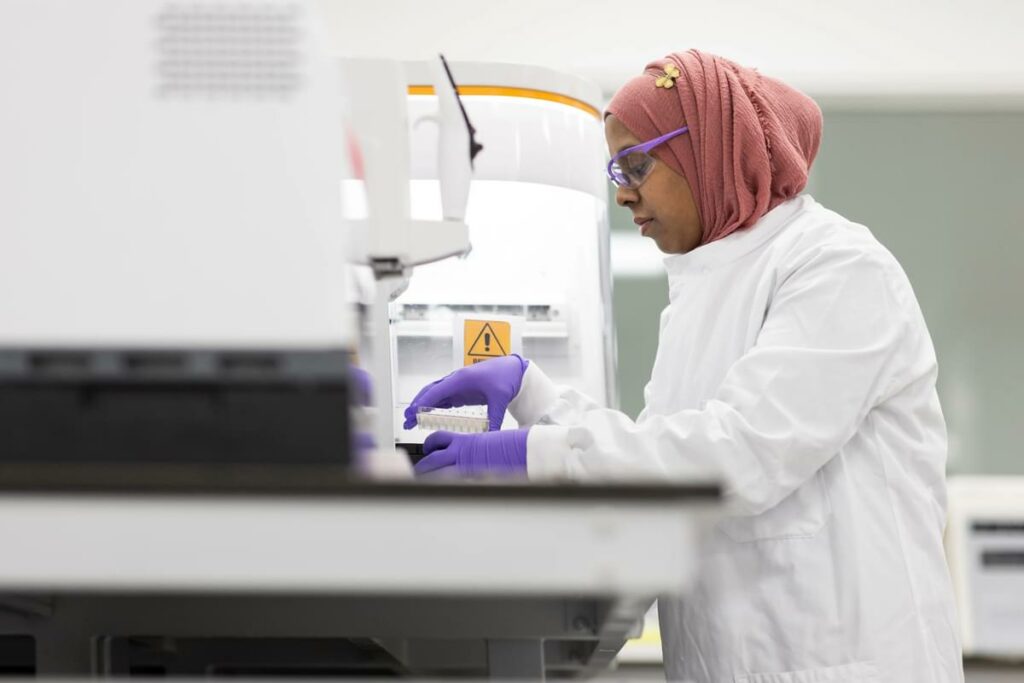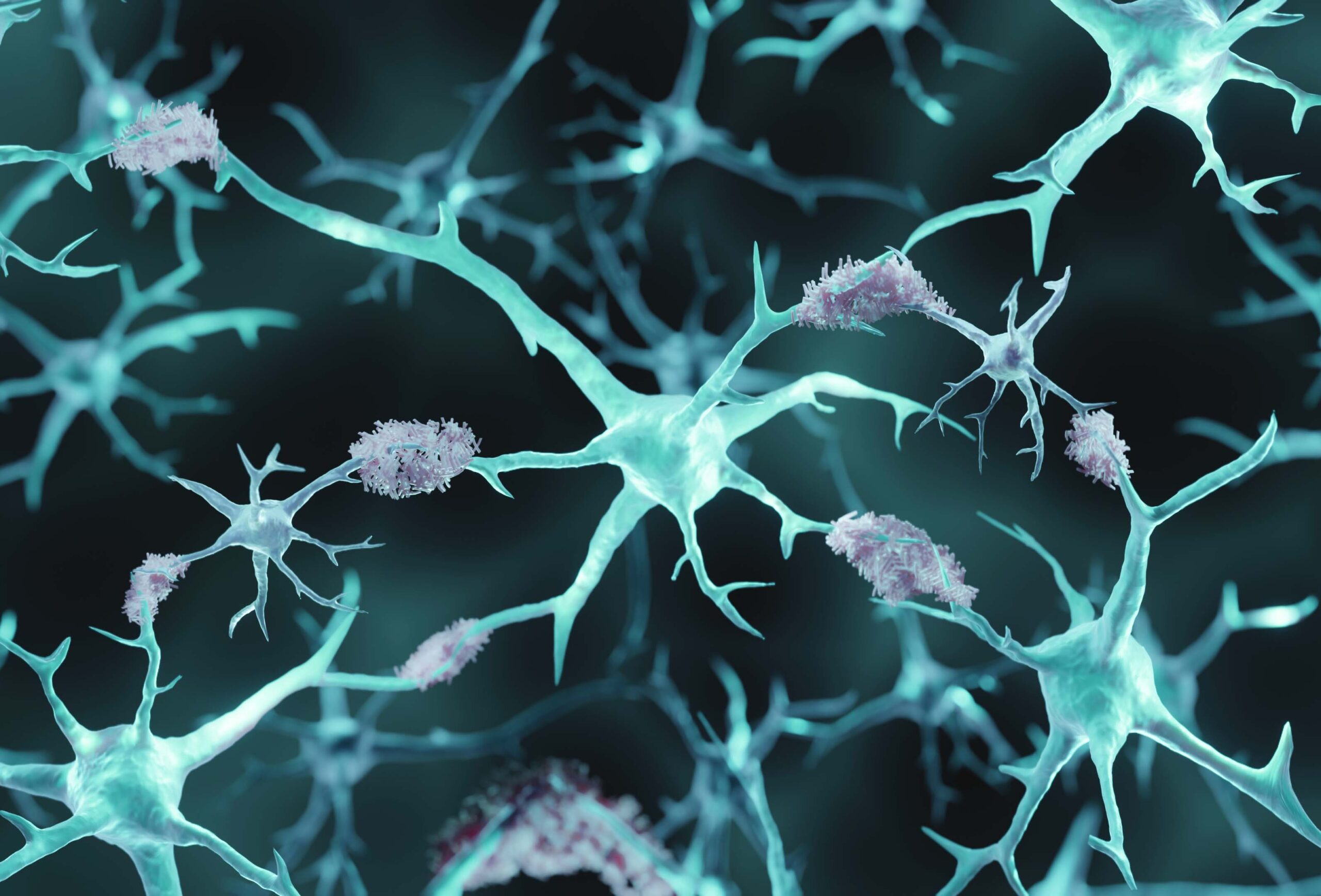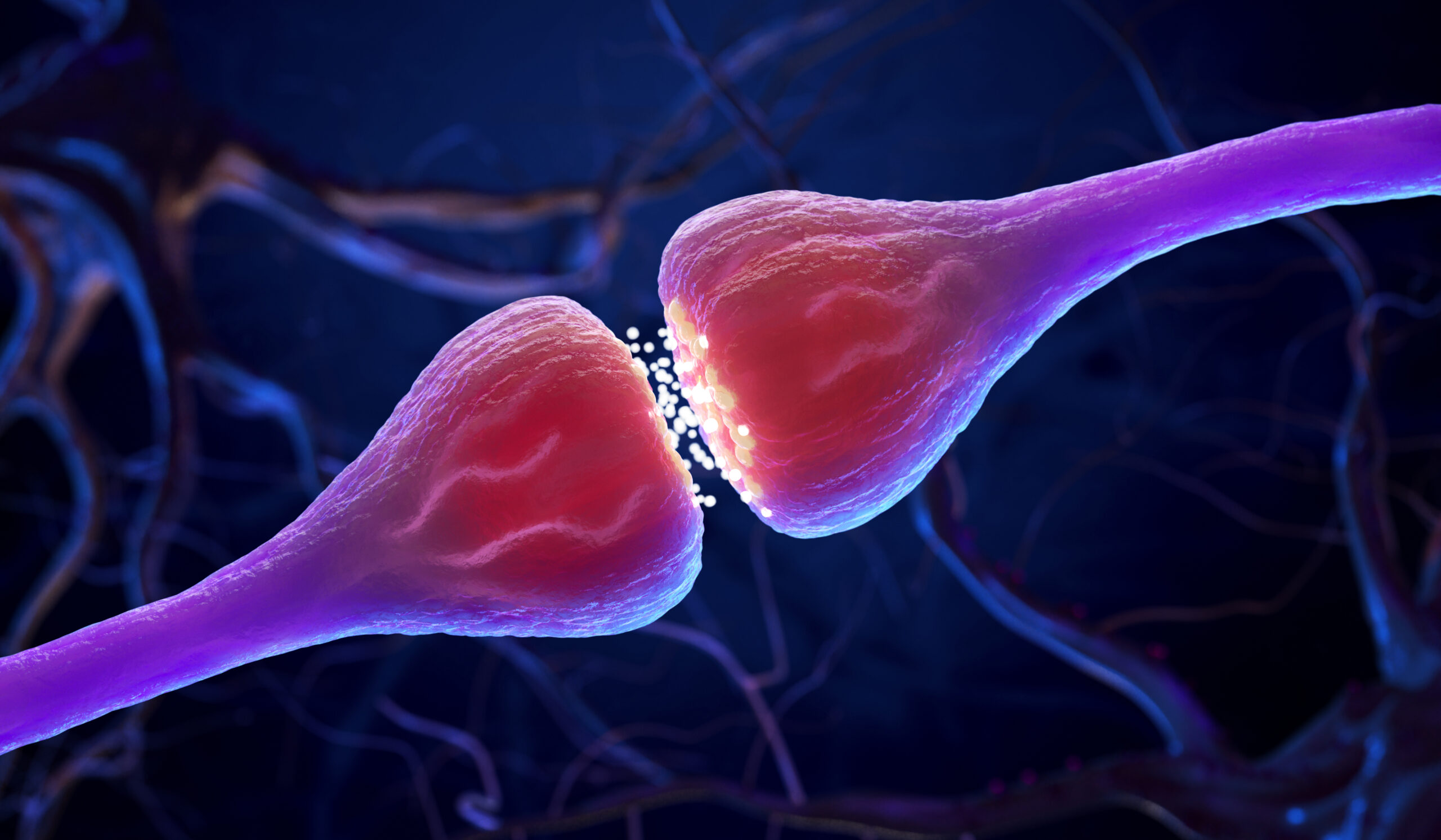UK DRI: A £30 million partnership for the development of new dementia treatments
Our partnership with the UK Dementia Research Institute (UK DRI) aims to accelerate the development of new diagnostic tests, treatments, and devices for people with dementia.

Overview
We have launched a 5-year strategic partnership with the UK DRI to tackle neurodegenerative diseases, including Alzheimer’s disease, motor neuron disease (MND), frontotemporal dementia (FTD), and Parkinson’s disease. The partnership brings together the strengths of UK DRI’s research into discovery science with our expertise in translating promising lab discoveries into new tests and treatments for patients.
About the partnership
Launched in 2022, the LifeArc–UK DRI partnership is backed by a £30 million commitment from ourselves to support dementia research at the UK DRI’s 6 host universities. The aim is to bridge the gap between early-stage discovery science and clinical application.
We bring decades of experience in technology transfer and therapeutic and diagnostic development, while UK DRI contributes groundbreaking fundamental research into the mechanisms of neurodegenerative diseases. Together, we are collaborating to identify and fund projects with the highest potential for clinical impact. By reducing the risks associated with early-stage research and attracting investment from pharmaceutical companies and biotech partners, the partnership will help bring innovative solutions to patients faster.
Projects funded so far
The first £14.5 million of the £30 million partnership has been allocated to 7 high-potential neurodegeneration research projects. The projects receiving the funding are:
Keeping people with dementia healthier at home through smart technology
Led by Professor David Sharp, UK Dementia Research Institute Centre for Care Research & Technology

Dementia can make everyday life increasingly difficult and lead to frequent, often preventable hospital admissions. The MinderCare project is a new NHS service developed by the UK Dementia Research Institute (UK DRI) Centre for Care Research & Technology, to help people living with dementia stay safe and well in their own homes.
MinderCare uses discreet, in-home digital sensors and artificial intelligence to track signs of illness or risk, such as changes in movement, sleep, vital signs, and environment. This data is analysed in real time and can alert healthcare teams to early warning signs of problems like infections, agitation or malnutrition—so they can step in before a crisis occurs.
The ultimate goal of the project is to show that MinderCare can enable a more proactive, personalised approach to dementia care, reducing stress for carers and avoiding hospital admissions, by delivering the right care at the right time.
A new gene therapy to slow ALS by correcting a key molecular mistake
Led by Dr Marc-David Ruepp, UK DRI at King’s College London

Amyotrophic lateral sclerosis (ALS) is a devastating condition that causes paralysis and early death. In over 95% of ALS cases, a key protein called TDP-43 stops working properly, leading to mistakes in the way genes are processed. This results in the production of faulty messages called cryptic exons that disrupt the function of vital nerve cell proteins, especially STMN2 and UNC13A.
Dr Marc-David Ruepp and his team at the UK Dementia Research Institute at King’s College London, in partnership with colleagues at UCL, have developed a new gene therapy approach that could fix this problem. They use a type of molecule called modified U7 small nuclear RNA (snRNA), packaged into a safe viral delivery system, to block these cryptic errors and restore the proper function of critical proteins.
Their therapy aims to:
- correct multiple faulty gene messages (not just one)
- deliver a long-lasting, single-dose treatment
- include a built-in molecular marker so doctors can track whether the therapy is working
This approach could benefit the vast majority of people with ALS, and potentially those with related conditions like frontotemporal dementia (FTD). If successful, it would lay the groundwork for a powerful new class of treatments for neurodegenerative disease.
Can a shelved anxiety drug help prevent dementia?
Led by Professor Paul Matthews and Dr. David Owen, UK DRI at Imperial College London

Cerebral small vessel disease (cSVD) is a major cause of dementia and stroke. It damages the brain’s smallest blood vessels, leading to memory problems, mood changes, and eventually loss of independence. Right now, there are no treatments that can stop or slow its progression.
Professor Paul Matthews and his team at the UK Dementia Research Institute at Imperial College London are testing a new approach. They’re repurposing a molecule called XBD173, which was originally developed to treat anxiety. Although it didn’t work for that condition, it was shown to be safe—and the researchers have discovered it may help protect the brain’s blood vessels.
The team will run a clinical study with people who have cSVD and memory problems. Participants will take either XBD173 or a placebo for 8 weeks, then switch after a 12-week break. Using MRI scans and blood tests, the researchers will see whether XBD173 improves blood flow and reduces signs of damage in the brain.
If successful, this study could pave the way for a new treatment to help prevent dementia and stroke in millions of people with cSVD.
A simple blood test for early detection of dementia
Led by Professor David Klenerman, UK DRI at the University of Cambridge

Many neurodegenerative diseases, including Alzheimer’s and Parkinson’s, involve the build-up of harmful protein clumps and inflammation in the brain, often years before symptoms appear. Detecting these changes early could make it possible to diagnose and treat the disease sooner.
Professor David Klenerman and his team at the UK Dementia Research Institute at the University of Cambridge are developing an ultra-sensitive blood test that can detect these tiny protein clumps and markers of inflammation. Their method, called SIMPULL, can identify and analyse the shape and size of individual protein aggregates using special imaging techniques. They are also exploring a commercial platform, SIMOA, which could make testing faster and more accessible, in collaboration with Prof Henrik Zetterberg and colleagues at the Biomarker Factory, at the UK DRI at UCL.
The team will test their assays on stored and newly collected blood samples from people with Alzheimer’s, Lewy body dementia, and brain injury. They aim to find the best combination of biomarkers to:
- diagnose disease earlier
- track how diseases progress
- predict who is at risk after head injury
If successful, this project could lead to a cost-effective, scalable blood test to screen and monitor people for dementia in healthcare settings across the UK and beyond.
A potential pill to treat ALS and FTD by restoring a key nerve protein
Led by Professor Adrian Isaacs, UK DRI at UCL

Amyotrophic lateral sclerosis (ALS) and frontotemporal dementia (FTD) are devastating brain diseases that currently have no cure. Most cases are linked to a faulty protein called TDP-43, which causes a dramatic drop in another protein (Stathmin-2) essential for healthy nerve cells.
Professor Adrian Isaacs at the UK Dementia Research Institute at UCL is building on work showing that boosting Stathmin-2 levels could restore nerve cell function. His team has already identified promising drug-like molecules that do just that in lab tests. Now, they plan to improve these compounds and test them in neurons and mouse models of ALS and FTD.
Their goal is to develop a simple, oral drug, rather than a gene therapy, that could be used widely, without the need for specialist treatment centres. If successful, this could represent a major step forward in treating the vast majority of people with ALS and FTD.
Combining repurposed drugs to find effective new treatments for MND
Led by Professor Siddharthan Chandran, UK DRI Director

Motor neuron disease (MND) is a rapidly progressive and fatal condition, and current treatments offer only limited benefit. Most cases involve a toxic build-up of the protein TDP-43, as well as harmful effects from other cell types like astrocytes and microglia. This suggests that combination therapies—targeting different disease pathways—may be more effective than single drugs.
Professor Siddharthan Chandran and his team at the UK Dementia Research Institute at the University of Edinburgh are using advanced laboratory screening techniques to identify drugs that:
- reduce TDP-43 aggregation
- boost antioxidant defences in support cells (astrocytes)
- reduce harmful inflammation in the brain
The team will focus on repurposing existing drugs developed for other conditions because they are already known to be safe in humans. The most promising drugs will then be tested in combinations to see if they work better together. Leading combinations will be assessed in mouse models, and the best candidates will be fast-tracked into the MND-SMART clinical trial—the UK’s largest academic MND drug trial.
This project aims to speed up the discovery of effective MND treatments by using a rigorous, efficient, and patient-informed approach.
A new brain-targeted antibody drug to reduce inflammation in Alzheimer’s disease
Led by Professor Paul Morgan and Dr Wiola Zelek, UK DRI at Cardiff University

Inflammation in the brain plays a major role in Alzheimer’s disease (AD), and one important driver of this inflammation is a component of the body’s own immune system, the complement system. A key part of this system is known as the membrane attack complex (MAC), a pore-forming complex designed to defend against infections by killing bacteria. In the context of Alzheimer’s, over-activation of complement leads to MAC-mediated damage to brain cells, triggering synapse loss and neurodegeneration.
Professor Paul Morgan and Dr Wiola Zelek’s team at the UK Dementia Research Institute at Cardiff University, with collaborators in Leuven and VIB, are developing a new type of antibody-based therapy that can enter the brain and block MAC formation, reducing inflammation and protecting brain cells.
Their approach builds on an existing set of antibodies made by the Cardiff teams that can stop MAC formation. These will be engineered to cross the blood-brain barrier by combining with a small nanobody that acts like a molecular shuttle to cross into the brain. The team will:
- create a human version of the MAC-blocking shuttle antibody for safe use in people
- test its effects in mouse models of Alzheimer’s disease modified to make suitable for the human agent
- confirm that the modified human antibody can reach the brain, inhibit MAC formation, reduce synaptic and neuronal damage, and rescue the decline in memory and behaviour.
This project aims to deliver a new type of brain-penetrant anti-complement drug to treat inflammation in Alzheimer’s and potentially other dementias, addressing a major unmet need where no suitable treatments currently exist.
About dementia
Dementia is a global health crisis affecting approximately 50 million people worldwide, including 900,000 in the UK, which is projected to rise to 1.6 million by 2040. It encompasses a group of progressive neurodegenerative diseases, including Alzheimer’s, MND, Parkinson’s, and FTD, which damage the brain and nervous system.
These conditions impair memory, cognition, motor function, and daily life, progressively worsening over time. Despite advancements in understanding the biological mechanisms underlying these diseases, there are still no effective treatments to slow, halt, or prevent their progression.
The work funded by us and UK DRI aims to accelerate progress in the field and has the potential to significantly improve the lives of people affected by dementia and their families.
Related information
News Article: £30m partnership with UK Dementia Research Institute

More about our work in Neurodegeneration

Contact us
In submitting your personal data via this form, you consent to being contacted via the details provided so that your enquiry can be responded to. If you would like your data to be removed, please email dataprivacy@lifearc.org.
Please see our Privacy Policy in relation to the personal data you submit to us through this page.
This site is protected by reCAPTCHA and the Google privacy policy and terms apply.



